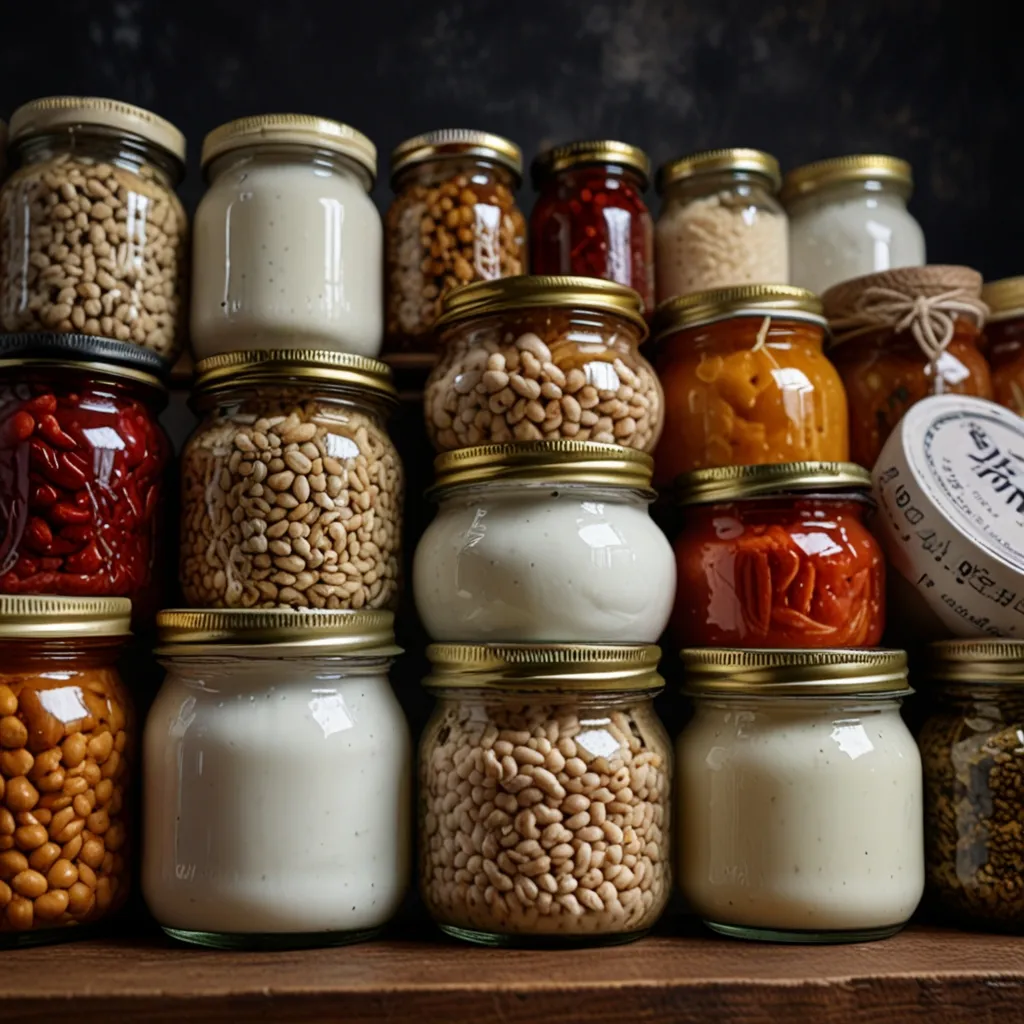Fermented foods—yeah, they’ve been a thing for like, forever. Across different cultures, people have been adding bacteria or yeast to food, transforming it into something totally different. This not only helps preserve the food but ramps up its nutrition and flavor. Let’s take a breather and dive into this tasty and beneficial world of fermentation.
So, let’s get rolling with some history. Fermentation isn’t some new-age discovery. People all over the globe have been doing this for eons. Think about how the ancient nomads in Bulgaria would store raw milk in animal skins. Boom, that’s how yogurt was born! Then, there’s Japan with its natto, a hardcore fermented soybean deal, and Korea with the ever-popular spicy kimchi. Different cultures have their unique fermented favorites, passed down through the ages like grandma’s best recipe.
In the old days, fermentation was a lifesaver, literally. It was one of the primary ways people preserved food before refrigerators were even thought of. Stuff like antimicrobial peptides and lactic acid, produced during fermentation, keep bad bacteria at bay. This means food lasts longer and doesn’t spoil as easily. But that’s not all. Fermentation even improves taste and texture, turning tough-to-eat stuff, like cassava, into a nutrient goldmine.
Nowadays, while we’ve got standard methods and cultures for fermentation, the old-school way was pretty DIY. People relied on the microbes from their hands, the ingredients, water, and basically the environment to get the job done. This created a wide range of probiotics, which are like little magic workers for our gut health.
Speaking of probiotics, these tiny guys are awesome for our digestive systems. They’re the beneficial bacteria living in our gut, helping break down food, absorb nutrients, and keep our gut flora balanced. Foods like yogurt, kefir, sauerkraut, and kimchi are packed with these probiotics. This whole process keeps our digestion running smoothly, making our lives a lot more comfortable.
But guess what? These probiotics don’t just stop at the gut. They also give our immune system a serious boost. They’re involved in producing antibodies and activating immune superstars like macrophages and natural killer cells. This means we get better at fighting off infections and staying healthy.
On the heart front, fermented foods also do their magic. They’re linked to reducing heart disease risk. Probiotics can help lower blood pressure and bring down those pesky LDL cholesterol levels. Including these foods in your diet can make your heart smile.
Mental health? Yeah, fermented foods have got that covered, too. Certain probiotic strains have been found to help with anxiety and depression symptoms. They work along the brain-gut axis, which means a healthier gut can lead to a happier mind. Pretty cool, right?
If you’re looking to manage your weight, fermented foods might be your new best friends. Some probiotics are linked to cutting down belly fat and even overall weight loss. They tweak our metabolism and fat storage, making it a bit easier to hit those fitness goals.
Digestive health gets a nice tick here, too. Fermented foods aid in breaking down food, reduce the symptoms of conditions like irritable bowel syndrome (IBS), and can even help those who are lactose intolerant. Kefir and sauerkraut are great examples that can make your digestive system purr like a kitten.
Got bones that need some TLC? Fermented dairy products like yogurt and cheese are rich in calcium and other essential minerals, keeping your bones strong and healthy.
For those battling allergies, certain fermented foods can lend a helping hand. Probiotics improve gut barrier function, which can reduce the severity of allergic reactions. So adding a bit of kimchi or miso soup to your diet could potentially soothe those annoying allergies.
However, it’s not all sunshine and rainbows. Fermented foods can cause some people to experience bloating and gas, especially if they go overboard. It’s key to start slow and gradually increase your intake to let your body adjust.
Getting these foods into your diet is a no-brainer. You can easily add small amounts of yogurt, kefir, or sauerkraut to your meals. Feeling adventurous? Try fermenting your own foods at home. Just make sure you use proper sterilization and storage techniques.
In short, fermented foods are like a treasure chest of goodness. They’re great for gut health, boost the immune system, support mental well-being, aid in weight management, and offer so many additional benefits. Plus, each spoonful brings a piece of rich history and a flavor punch that can’t be beat. Dive into the world of fermented foods and see your body and taste buds light up with joy. Cheers to better health, one bite a time!






